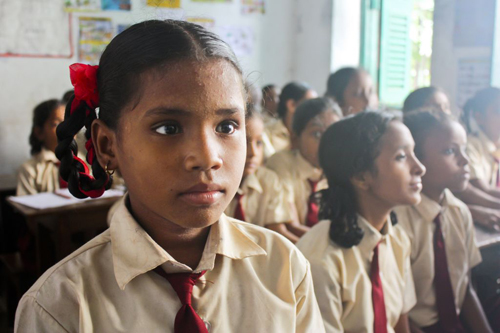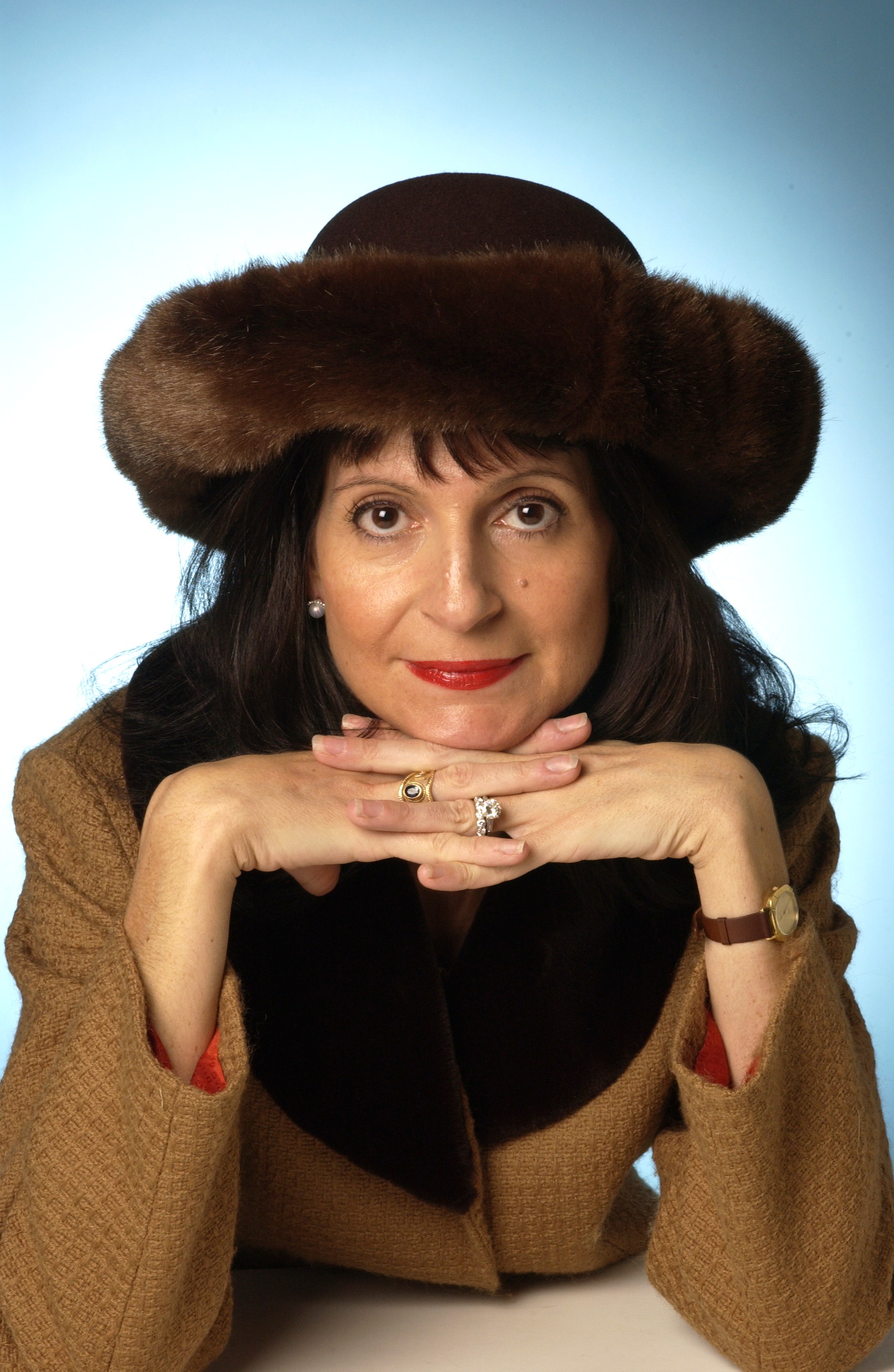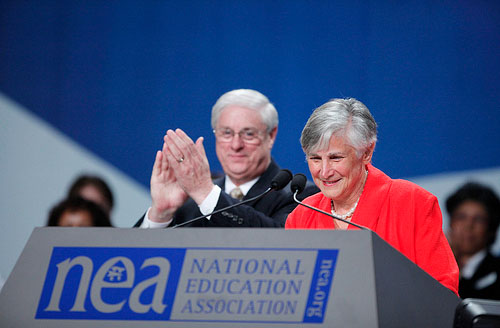Τι θέλουν οι μαθητές — και τι μπορούν και πρέπει να κάνουν καλύτερα οι παγκόσμιοι ηγέτες!
Σημειώστε αυτή τη μέρα με μια λευκή πέτρα — Ιούλιος 12, 2013. Ο χώρος: Τα Ηνωμένα Έθνη. Το γεγονός: Μαλάλα Γιουσαφζάι, η ατρόμητη ακτιβίστρια για τα δικαιώματα της εκπαίδευσης από το Πακιστάν πυροβολήθηκε από εξτρεμιστές στο δρόμο της για το σχολείο, παίρνει το επίκεντρο για να γιορτάσει τα γενέθλιά της και μαζί με τους συμφοιτητές της, leads us in a global discussion of the world’s major education issues. The birthday wish: That all diplomats in the audience use this celebration for renewal of their commitment and match their rhetoric for education reform with real actions in each of their own countries. All countries can and must do more to help the world’s children achieve a relevant, quality 21st century education. Let me share some of my reflections from listening to voices around the world on the diverse and contrasting education issues nations face today.
Education is the greatest armament in the battle on poverty, ασθένεια, brutality and prejudice. Providing education for children in the emerging markets is both vital and relatively cheap. Είναι, starting today, what more can we do to get 31 million girls and 26 million boys into school and achieve the Millenium Development Goal to boost access to education worldwide?
Extremists tremble at the prospect of children with knowledge. The empowerment of students today is the single most potent solution to tomorrow’s peace. What more can Nigerian leaders do to end the torchings and brutal murders of exemplary school children by Boko Haram (name translates as “western education is sinful”), which has been blamed for killing more than 1600 victims since 2010?
If India enrolled 1 percent more girls in secondary school, their GDP would rise by $5.5 δισεκατομμύριο. Girls with eight years of education are four times less likely to be married as children. A child born to a literate mother is 50 percent more likely to survive past the age of five. A girl with an extra year of education can earn 20 percent more as an adult, and educated mothers are more than twice as likely to send their children to school. We understand how and why educating girls works thanks to the voices of nine remarkable girls from Peru, Αΐτη, Αίγυπτος, Σιέρα Λεόνε, Αφγανιστάν, Αιθιοπία, Ινδία, Nepal and Cambodia in Richard Robbins’ powerful film, Κορίτσι Rising. What more can their countries do to support them?
Chilean students cry out that free public education is a universal human right and is the most effective way to address the severe social inequalities in a country where the rich go to the best universities and the poor go to third class universities. What more can Chile’s leadership do to support an education system with deep divides along class lines (ένα από τα χαμηλότερα επίπεδα του κόσμου της δημόσιας χρηματοδότησης για την τριτοβάθμια εκπαίδευση, μερικές από τις μεγαλύτερες βαθμών, κανένα ολοκληρωμένο σύστημα φοιτητικών υποτροφιών ή επιδοτούμενων δανείων)?
Αφ 'ενός, society says I must get an education. On the other, society isn’t going to pay for it if I cannot. Shouldn’t going to University depend on ability versus ability to pay? Around the world, οι μαθητές έχουν ενώσει τις δυνάμεις τους για την αντιμετώπιση της αύξησης των εξόδων της τριτοβάθμιας εκπαίδευσης και η έλλειψη της προσβασιμότητας. They also seek the answer to this question, “Will the enormous investment in time and money I am being asked to make in my education pay off?” Στις Ηνωμένες Πολιτείες, the student loan debt is more than $1 τρισεκατομμύριο (60 percent of students must borrow to help cover costs according to the Χρονικό της Ανώτατης Εκπαίδευσης), making it the highest form of personal debt in this country. In Great Britain, the National Campaign Against Fees and Cuts protests government’s plans for a market-driven higher education system, rising tuition fees and a growing number of students being priced out of obtaining a degree. Τον περασμένο χρόνο, we have seen similar protests from dedicated student organizations in Quebec, Νέα Ζηλανδία, Γουατεμάλα, Spain and Italy, to mention but a few. What more can the governments of these countries do to find solutions to student needs?
To the education leaders in the United Nations audience for Malala and her fellow students, I say: You need a game changer that will address the variety of big picture issues that today’s students face. You need to be more innovative in terms of finding solutions to what is becoming the world’s biggest problem. Around the world today, students are wide awake. They are many and they are united by one struggle — they want education to be accessible, affordable and relevant to their lives. They will continue to mobilize and you can be sure that on this issue, they are not going to back down.
Στο παγκόσμιο Αναζήτηση για Εκπαίδευση, μαζί μου και παγκοσμίως γνωστή ηγέτες σκέψης συμπεριλαμβανομένου του Sir Michael Κομμωτήριο (Ηνωμένο Βασίλειο), Ο Δρ. Michael Block (ΗΠΑ), Ο Δρ. Leon Botstein (ΗΠΑ), Καθηγητής Clay Christensen (ΗΠΑ), Ο Δρ. Linda Ντάρλινγκ-Hammond (ΗΠΑ), Ο Δρ. Madhav Chavan (Ινδία), Ο καθηγητής Michael Fullan (Καναδάς), Ο καθηγητής Howard Gardner (ΗΠΑ), Ο καθηγητής Andy Hargreaves (ΗΠΑ), Ο καθηγητής Yvonne Hellman (Η Ολλανδία), Ο καθηγητής Kristin Helstad (Νορβηγία), Jean Hendrickson (ΗΠΑ), Καθηγητής Rose Hipkins (Νέα Ζηλανδία), Καθηγητής Cornelia Hoogland (Καναδάς), Αξιότιμο Jeff Johnson (Καναδάς), Η κ. Chantal Kaufmann (Βέλγιο), Ο Δρ. Eija Kauppinen (Φινλανδία), Υφυπουργός Tapio Kosunen (Φινλανδία), Ο καθηγητής Dominique Λαφοντέν (Βέλγιο), Ο καθηγητής Hugh Lauder (Ηνωμένο Βασίλειο), Καθηγητής Ben Levin (Καναδάς), Lord Ken Macdonald (Ηνωμένο Βασίλειο), Καθηγητής Barry McGaw (Αυστραλία), Shiv Nadar (Ινδία), Καθηγητής R. Natarajan (Ινδία), Ο Δρ. PAK NG (Σιγκαπούρη), Ο Δρ. Denise Πάπα (ΗΠΑ), Sridhar Rajagopalan (Ινδία), Ο Δρ. Diane Ravitch (ΗΠΑ), Richard Wilson Riley (ΗΠΑ), Sir Ken Robinson (Ηνωμένο Βασίλειο), Καθηγητής Pasi Sahlberg (Φινλανδία), Andreas Schleicher (PISA, ΟΟΣΑ), Ο Δρ. Anthony Seldon (Ηνωμένο Βασίλειο), Ο Δρ. David Shaffer (ΗΠΑ), Ο Δρ. Kirsten Μοναδική Are (Νορβηγία), Στήβεν Spahn (ΗΠΑ), Yves Theze (Lycee Francais Η.Π.Α.), Ο καθηγητής Charles Ungerleider (Καναδάς), Ο καθηγητής Tony Wagner (ΗΠΑ), Sir David Watson (Ηνωμένο Βασίλειο), Καθηγητής Dylan Γουίλιαμ (Ηνωμένο Βασίλειο), Ο Δρ. Mark Wormald (Ηνωμένο Βασίλειο), Ο καθηγητής Theo Wubbels (Η Ολλανδία), Ο καθηγητής Michael Young (Ηνωμένο Βασίλειο), και ο καθηγητής Minxuan Zhang (Κίνα) καθώς εξερευνούν τα μεγάλα ζητήματα της εκπαίδευσης εικόνα που όλα τα έθνη αντιμετωπίζουν σήμερα. Η Παγκόσμια αναζήτηση για την Εκπαίδευση της Κοινότητας Σελίδα
C. M. Rubin είναι ο συγγραφέας των δύο πολυδιαβασμένα online σειρά για την οποία έλαβε ένα 2011 Βραβείο Upton Sinclair, “Η Σφαιρική Αναζήτηση για Εκπαίδευση” και “Πώς θα μας Διαβάστε?” Είναι επίσης ο συγγραφέας του μπεστ σέλερ τρία βιβλία, Συμπεριλαμβανομένων Η Ρεάλ Αλίκη στη Χώρα των Θαυμάτων.





Πρόσφατα σχόλια